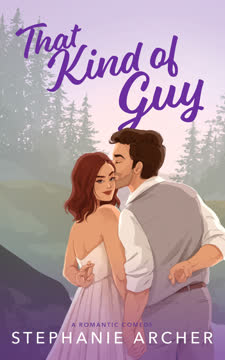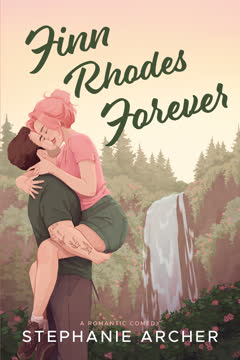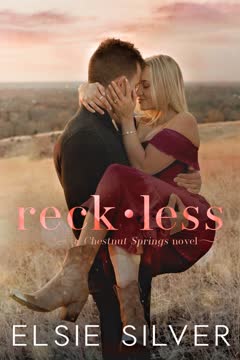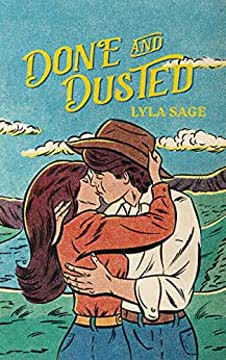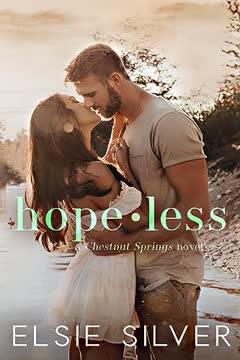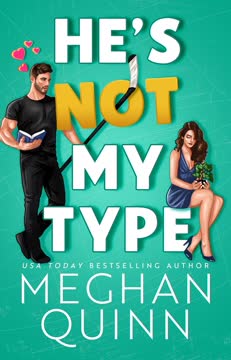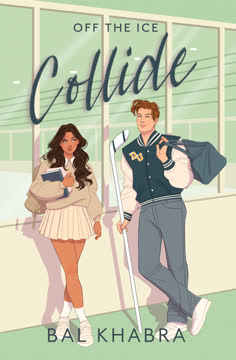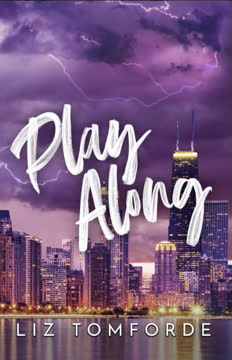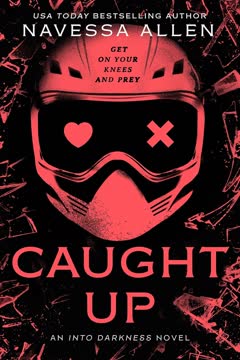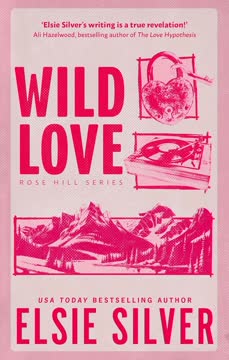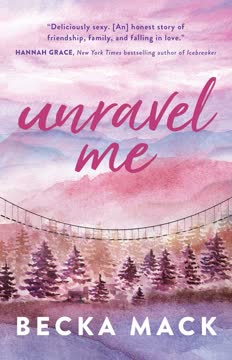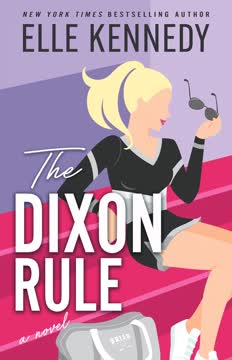Plot Summary
Orcs, Books, and Embarrassment
Hannah Nielsen, shy owner of a struggling small-town bookstore, endures a mortifying moment when a customer reads explicit orc erotica aloud—right as her longtime crush, surfer Wyatt Rhodes, walks in. Wyatt is the town's golden boy: athletic, charming, and seemingly out of reach. Hannah's embarrassment is compounded by her sense of invisibility and the weight of her late mother's legacy, which she feels she's failing to uphold. The bookstore, once vibrant, is now faded and financially precarious. Hannah's world is small, safe, and stagnant, but the spark of humiliation and Wyatt's unexpected presence hint at the possibility of change. The scene sets the tone for a story about stepping out of comfort zones, confronting shame, and the first stirrings of transformation.
The Gold Dress Challenge
Hannah's glamorous friend Thérèse gifts her a dazzling gold dress, challenging her to be seen and adored. The dress symbolizes everything Hannah feels she isn't—bold, sexy, confident. Thérèse's effortless confidence and encouragement plant a seed: maybe Hannah could be more. Alone, Hannah makes a secret list: save the bookstore, find true love, become a "hot girl," and make her mother proud. The list is both a cry for help and a declaration of intent. The gold dress becomes a talisman for change, representing the possibility of a new identity. Hannah's longing for love and self-worth is palpable, and her resolve to change is tinged with both hope and self-doubt.
Surf Lessons and Blackmail
Desperate for transformation, Hannah blackmails Wyatt into teaching her how to be a "hot girl," using a secret music video of him as leverage. Wyatt, amused and intrigued, agrees—on the condition that Hannah does everything he says. Their dynamic is playful, charged, and full of mutual curiosity. Wyatt's world is one of risk, freedom, and living in the moment, while Hannah's is cautious and rule-bound. The surf lessons become a metaphor for stepping into the unknown. Both are drawn to each other's differences: Hannah envies Wyatt's confidence, while Wyatt is fascinated by Hannah's hidden fire. Their partnership is uneasy but electric, setting the stage for growth and intimacy.
Falling Off, Getting Up
Hannah's first surf lesson is a disaster—she falls, swallows water, and panics at seaweed she mistakes for a shark. But Wyatt's steady presence and encouragement help her push through fear. The experience is humiliating but also exhilarating; for the first time, Hannah feels the thrill of trying and failing without judgment. Wyatt's philosophy—"here for a good time, not a long time"—begins to rub off on her. The ocean becomes a place of both terror and possibility. Hannah's willingness to return for more lessons signals a shift: she's learning to embrace discomfort, and Wyatt is learning to care about someone else's progress.
Ten Awkward Rejections
Wyatt's first "hot girl" assignment for Hannah is to ask out ten men in town. The exercise is excruciating: she's rejected, misunderstood, and pitied. Yet, with each awkward encounter, Hannah's embarrassment lessens and her resilience grows. The town's reactions—ranging from confusion to support—mirror Hannah's own journey from invisibility to visibility. Wyatt watches with a mix of amusement and unexpected protectiveness, especially when other men show interest. The exercise is less about romance and more about building courage. Hannah's willingness to be seen, even as a fool, marks a turning point in her self-perception.
Bad Dates and Karaoke Nights
Hannah's practice dates are a series of disasters: a drunken surf shop employee, a well-meaning but awkward friend, and a sweet doctor who feels more like a friend than a lover. Each encounter is a lesson in what she doesn't want. After a particularly bad date, Wyatt rescues her at the bar, and they share a night of laughter, karaoke, and honest conversation. Wyatt's encouragement to "order what you like" and "be yourself" resonates deeply. The bar's supportive, quirky community becomes a backdrop for Hannah's growing confidence. The night ends with a sense of possibility—Hannah is learning to enjoy life, not just endure it.
Becoming a Hot Girl
Hannah's confidence grows as she experiments with new clothes, a bold haircut, and more assertive behavior. She starts a social media account for the bookstore, revitalizes its image, and brings in new customers. Wyatt's surf lessons continue, and their chemistry intensifies. Both are changing: Hannah is becoming braver, while Wyatt is drawn into her world of books and community. Yet, insecurities linger—Hannah still doubts her worth, and Wyatt fears attachment. Their mutual attraction simmers, complicated by the knowledge that Wyatt's dream of going pro may take him away. The gold dress, once a symbol of impossibility, now feels within reach.
Surfing, Social Media, and Jealousy
Hannah's social media savvy boosts both the bookstore and Wyatt's profile, attracting attention from sponsors. At the farmer's market, Hannah's book recommendations and Wyatt's support lead to record sales. Their partnership is fruitful but fraught: Wyatt's jealousy flares when other men show interest in Hannah, and Hannah is unsettled by her growing feelings for Wyatt. The town begins to see Hannah in a new light, and she starts to see herself differently, too. Yet, both are haunted by the impermanence of their connection—Wyatt's future is uncertain, and Hannah's sense of home is fragile.
Farmer's Market Breakthrough
The bookstore's presence at the farmer's market is a triumph, thanks to Hannah's curation and Wyatt's encouragement. The event is a microcosm of Hannah's transformation: she's no longer hiding, but engaging, recommending, and connecting. The town rallies around her, and the bookstore's fortunes improve. Wyatt's pride in Hannah is evident, and their bond deepens. Yet, the specter of change looms—Wyatt's surf competition approaches, and Hannah's father returns, threatening to undo her progress. The market is both a celebration and a reminder that nothing lasts forever.
First Kisses, First Lessons
A late-night visit from Wyatt leads to their first real kiss—intense, hungry, and full of pent-up longing. The encounter is electric but stops short of sex, as both are aware of the emotional stakes. Wyatt assigns Hannah "homework" to explore her own pleasure, encouraging her to discover what she likes. Their dynamic shifts from teacher-student to equals, each learning from the other. The line between practice and reality blurs, and both are forced to confront what they truly want. The gold dress, once a fantasy, now feels like a promise.
Practice Makes Perfect
Hannah's journey into sexual self-discovery is awkward, funny, and ultimately empowering. With Wyatt's guidance, she learns to ask for what she wants and to take pleasure seriously. Their physical relationship deepens, marked by trust, communication, and mutual respect. Wyatt, in turn, is forced to confront his own fears of attachment and loss. Their intimacy is both playful and profound, a space where both can be vulnerable. Yet, the reality of Wyatt's impending departure hangs over them, threatening to turn their newfound connection into another temporary joy.
The Camping Confession
A camping trip becomes a crucible for honesty and vulnerability. Surrounded by nature, Hannah and Wyatt open up about their fears, dreams, and past wounds. Wyatt confesses his fear of success and leaving home; Hannah admits her terror of disappointing her mother and being left behind. Their physical connection reaches new heights, but it's their emotional intimacy that marks a true turning point. Both realize they are falling in love, but neither is ready to say it. The night is both a celebration and a foreshadowing of the choices to come.
Family, Fear, and Falling
Back in town, Hannah's transformation is complete: the bookstore is renovated, the mural is redone, and the community rallies around her. Yet, her father's return brings conflict—he accuses her of erasing her mother's memory, and Hannah is forced to defend her choices. Wyatt's surf competition looms, and both are faced with the reality that their time together may be ending. Family, fear, and the desire for belonging collide. Both must decide whether to cling to the past or risk everything for a future together.
The Store Transformed
Hannah's father finally acknowledges her achievements and signs the store over to her. The bookstore, once a symbol of stagnation, is now a testament to Hannah's vision and courage. Wyatt's family embraces Hannah, and the town celebrates her success. Yet, the question of the future remains: will Hannah choose to stay, or will she risk everything to follow Wyatt? The gold dress, once a symbol of longing, is now a badge of honor. Hannah stands at a crossroads, ready to claim her own happiness.
The Final Wave
Wyatt's surf competition is both a triumph and a reckoning. He performs brilliantly, but the victory is hollow without Hannah by his side. Both are forced to confront their deepest fears: Wyatt's fear of loss, and Hannah's fear of change. A painful breakup ensues, each believing they are doing the right thing for the other. The town, once a place of comfort, now feels empty. Both must decide whether to accept impermanence or fight for something lasting.
Letting Go, Coming Home
Separated, Hannah and Wyatt are haunted by what they've lost. Each seeks advice from family and friends, confronting the ways they've held themselves back. Hannah realizes that making her mother proud means living fully, not living in fear. Wyatt learns that love is worth the risk, even if it's temporary. Both are changed by their time apart, and both are ready to be brave. The gold dress, once hidden, is worn with pride.
Bravery, Love, and New Beginnings
Hannah and Wyatt reunite, each confessing their love and their willingness to risk everything for each other. Hannah delegates the bookstore, choosing to travel with Wyatt as he pursues his surfing dreams. Their love is not a fairy tale, but a hard-won partnership built on courage, honesty, and mutual respect. The story ends with a wedding on the beach, surrounded by family and friends, and the promise of a life lived bravely, together. The gold dress, the surfboard, and the bookstore are no longer symbols of longing, but of a life fully claimed.
Characters
Hannah Nielsen
Hannah is the heart of the story: a bookish, introverted woman paralyzed by grief, self-doubt, and the weight of her mother's legacy. She lives in the shadow of her mother's vibrant memory, running a failing bookstore and hiding from life. Her journey is one of incremental bravery—each awkward date, each surf lesson, each public embarrassment is a step toward self-acceptance. Hannah's relationships—with her father, her friends, and especially Wyatt—force her to confront her fears and redefine what it means to be "enough." Her transformation is both external (new look, new confidence) and internal (claiming her desires, her business, and her right to happiness). By the end, Hannah is no longer hiding; she is seen, loved, and, most importantly, proud of herself.
Wyatt Rhodes
Wyatt is the embodiment of living in the moment: athletic, charming, and seemingly unflappable. Beneath his laid-back exterior, however, is a man haunted by loss and the fear of attachment. His philosophy—"everything is temporary"—is both a shield and a prison. Wyatt's attraction to Hannah is rooted in her authenticity and vulnerability; she challenges him to care, to risk, and to hope. His journey is about learning that love is worth the pain of loss, and that true bravery is not in avoiding attachment, but in embracing it. Through Hannah, Wyatt discovers the joy of building something lasting, even in a world where nothing is guaranteed.
Frank Nielsen
Frank is both a source of comfort and conflict for Hannah. His refusal to change the bookstore is rooted in grief and guilt; he fears that moving on means forgetting his wife. His relationship with Hannah is fraught with unspoken expectations and mutual disappointment. Frank's arc is about letting go—of the past, of control, and of the belief that honoring the dead means sacrificing the living. His eventual acceptance of Hannah's vision is a hard-won act of love.
Thérèse Beauchamp
Thérèse is everything Hannah is not: bold, stylish, and unapologetically herself. She serves as both a mirror and a challenge, gifting Hannah the gold dress and daring her to be seen. Thérèse's confidence is infectious, and her belief in Hannah's potential is unwavering. She represents the possibility of reinvention and the importance of supportive female friendships.
Liya
Liya is Hannah's anchor at the bookstore: practical, supportive, and quietly ambitious. She encourages Hannah's social media efforts and helps modernize the store. Liya's presence is a reminder that change is possible, and that community is built one relationship at a time. Her own journey—eventually becoming the store's manager—mirrors Hannah's growth.
Avery
Avery is Hannah's closest friend and a living example of embracing imperfection. Her marriage to Emmett (Wyatt's brother) is a subplot that highlights the messiness and joy of real relationships. Avery's unwavering support and gentle nudges help Hannah take risks, while her own journey underscores the importance of choosing happiness over fear.
Emmett Rhodes
Emmett is the glue of the Rhodes family: responsible, loving, and a bit of a goof. His relationship with Avery provides a model of partnership for Hannah and Wyatt. Emmett's encouragement and humor lighten the story, while his own vulnerabilities add depth to the family dynamic.
Holden Rhodes
Holden is the quiet, brooding member of the Rhodes clan. His reserved nature masks a deep loyalty and protectiveness, especially toward his siblings. Holden's subtle support of Hannah and Wyatt's relationship is a testament to the power of actions over words.
Elizabeth Rhodes
Elizabeth is the emotional center of the Rhodes family: warm, perceptive, and quietly formidable. She sees the best in Hannah and Wyatt, offering both encouragement and tough love. Elizabeth's acceptance of Hannah is a turning point, signaling that Hannah is truly part of the family.
Veena
Veena is Frank's new partner, representing the possibility of love after loss. Her presence challenges both Frank and Hannah to confront their grief and embrace change. Veena's warmth and honesty are a balm, and her relationship with Frank is a parallel to Hannah and Wyatt's journey toward new beginnings.
Plot Devices
Dual Narration and Alternating Perspectives
The novel alternates between Hannah's and Wyatt's perspectives, allowing readers to experience both the internal anxieties of a shy, self-doubting woman and the outward bravado of a man afraid of attachment. This structure creates dramatic irony—readers know what each character is hiding from the other—and heightens the emotional stakes. The dual narration also allows for parallel arcs of growth, as both characters confront their fears and learn from each other.
Symbolism: The Gold Dress and the Surfboard
The gold dress represents Hannah's longing to be seen, to be bold, and to claim her desires. It is both a challenge and a reward, marking her journey from invisibility to self-acceptance. The surfboard, meanwhile, is a symbol of risk, failure, and the willingness to get back up. Both objects recur throughout the story, marking pivotal moments of change and serving as touchstones for the characters' growth.
"Homework" and Practice as Plot Engine
Wyatt's assignments—asking men out, practicing self-pleasure, singing karaoke—are both literal and metaphorical steps toward bravery. Each "homework" task forces Hannah to confront her fears, while also deepening her connection with Wyatt. The motif of practice blurs the line between performance and authenticity, culminating in the realization that real love is not about perfection, but about showing up, trying, and being seen.
Community as Character
The quirky, supportive, and sometimes meddling townspeople serve as both obstacles and allies. Their reactions to Hannah's transformation, Wyatt's ambitions, and the couple's relationship provide both comic relief and emotional grounding. The community's embrace (or resistance) mirrors the characters' internal struggles, reinforcing the theme that belonging is both a gift and a choice.
Foreshadowing and Callbacks
The novel is rich with foreshadowing: the gold dress, the orc erotica, the karaoke night, and the surf competition all set up later payoffs. Callbacks—such as the return to the bookstore, the transformation of the mural, and the final wedding on the beach—create a sense of narrative cohesion and emotional closure. The story's structure is cyclical, with each ending marking a new beginning.
Analysis
Stephanie Archer's The Wrong Mr. Right is a contemporary romance that transcends its genre trappings by offering a nuanced exploration of self-worth, grief, and the courage to change. At its core, the novel is about two people learning to be brave—not just in love, but in life. Hannah's journey from invisibility to self-acceptance is both universal and deeply personal, resonating with anyone who has ever felt "not enough." Wyatt's arc, meanwhile, challenges the myth of the carefree bachelor, revealing the vulnerability beneath bravado and the cost of living in fear of loss. The novel's humor, warmth, and frankness about sex and shame make it both entertaining and emotionally resonant. Archer's use of community, symbolism, and dual narration creates a rich tapestry of interconnected lives, where growth is messy, love is risky, and happiness is a choice. The ultimate lesson is that true love is not about finding the "right" person, but about becoming the right person for yourself—and then daring to share that self with another. In a world obsessed with perfection and permanence, The Wrong Mr. Right is a joyful, honest reminder that the best things in life are often the ones we're most afraid to claim.
Last updated:
Review Summary
The Wrong Mr. Right receives mostly positive reviews, with readers praising the charming romance, character development, and humor. Many enjoy the small-town setting and the friends-to-lovers storyline. Criticisms include overuse of certain phrases and some find the characters immature for their age. The spicy scenes are well-received, and readers appreciate the book's positive message about romance novels. Some reviewers mention the slow burn and character growth as highlights. Overall, it's recommended for those seeking a light, fun romance with a guaranteed happy ending.

